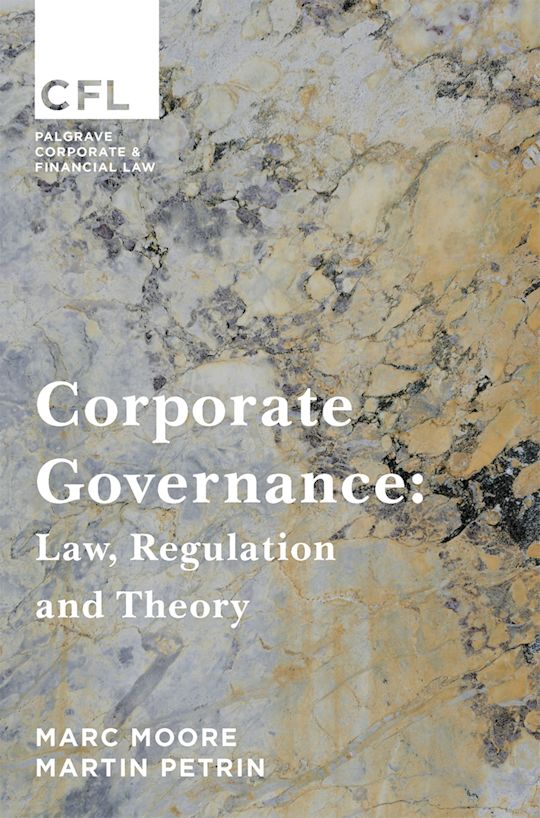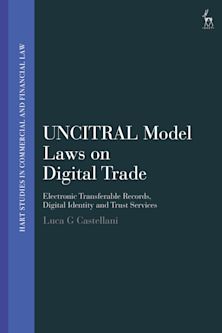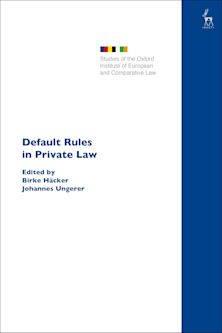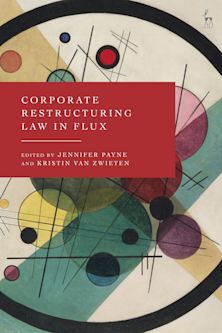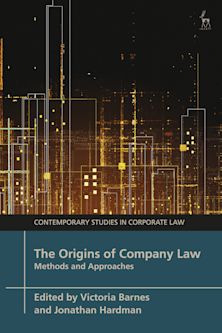- Home
- ACADEMIC
- Law
- Company, Corporate and Commercial Law
- Corporate Governance
Corporate Governance
Law, Regulation and Theory
- Textbook
Corporate Governance
Law, Regulation and Theory
- Textbook
Inspection copy added to basket
Choose your preferred format. If you would prefer an ebook and it is not displayed below, please visit our inspection copies page.
Please note ebook inspection copies are fulfilled by VitalSource™.
Buy from Bloomsbury eTextBooks
You are now leaving the Bloomsbury Publishing website. Your eBook purchase will be with our partner https://www.vitalsource.com.
Your credit card statement will show this purchase originating from VitalSource Technologies. They will also provide any technical assistance you might require.
You must sign in to add this item to your wishlist. Please sign in or create an account
Description
This textbook on corporate governance is written for advanced undergraduate and graduate law students, as well as scholars working in the field. It offers clear insight into this fascinating area of financial law, from the analysis of the legal and regulatory framework of corporate governance in the UK to the core laws and regulatory principles that determine the allocation of decision-making power in UK public companies.
This book also highlights how prevailing corporate governance norms operate within their broader market and societal context. In doing so, it seeks to encourage readers to develop their own critical opinions on the topic by reference to leading strands of theoretical and inter-disciplinary literature, along with relevant comparative and historical insights.
Table of Contents
1. What is corporate governance?
2. Corporate governance and theory of the firm
3. The corporate governance regulatory architecture
Part II: Relational aspects of corporate governance: Shareholders, boards, managers and employees
4. Board authority and shareholders' right of intervention
5. Institutional investors and shareholder engagement
6. Corporate governance and labour
Part III: Corporate risk management and oversight
7. The monitoring board and independent directors
8. Internal control and risk management
Part IV: Managerial incentives and disciplines
9. Design and control of executive remuneration
10. Regulation of the market for corporate control.
Product details
| Published | 15 Sep 2017 |
|---|---|
| Format | Ebook (PDF) |
| Edition | 1st |
| Extent | 315 |
| ISBN | 9781137403322 |
| Imprint | Red Globe Press |
| Illustrations | 40 bw illus |
| Series | Corporate and Financial Law |
| Publisher | Bloomsbury Publishing |
About the contributors
Reviews
-
At long last we have a book that can be used as a text for undergraduate and postgraduate corporate governance modules designed for law students. It is well-written and covers many of the subject areas that are likely to feature in corporate governance modules offered to law students.
Andrew Keay, School of Law, University of Leeds, UK
-
In this important new work, two globally recognized corporate scholars provide an engaging and insightful guide to the complex array of legal, regulatory, and market structures conditioning internal governance of U.K. public companies. Moore and Petrin deftly blend theoretical rigor with pragmatic grounding, and bring considerable comparative sophistication to bear upon their analyses of U.K. corporate governance dynamics. The result is at once exacting and readable, offering great rewards for students, scholars, and practitioners alike.
Christopher Bruner, University of Georgia School of Law, USA
-
Over the past decade courses on Corporate Governance have proliferated but without a central text that could be used to teach those courses. Here at last is a suitably erudite and well written text that students and academics can use for Corporate Governance and as a supplementary text for Company Law courses.
Alan Dignam, School of Law, Queen Mary, University of London, UK
-
The book offers a very thorough and comprehensive discussion of what has now emerged as the stand alone subject of corporate governance. It covers extremely well both the theoretical and the regulatory aspects. It is by far the best academic textbook out there and will be an invaluable and irreplaceable source for related postgraduate and undergraduate courses.
Michael Galanis, School of Law, The University of Manchester, UK









